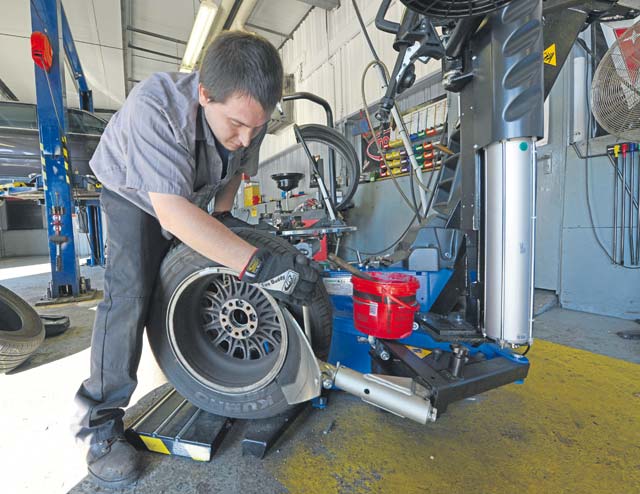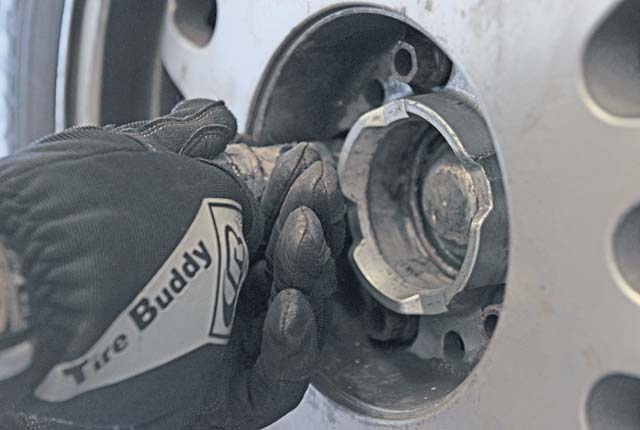
The golden leaves of fall begin to fade away and along come the frosted branches of winter. In order to fully enjoy the holiday season, keeping ones winter tires in mind is a priority.
It is highly recommended in Germany that all motor vehicles have winter or all-season tires fitted during road conditions brought on by the winter season; however, if involved in an accident without winter or all-season tires, the driver will be cited or fined on the spot.
Winter or all-season tires have a symbol of Mud + Snow (M+S), a three-peaked mountain, a snowflake or a combination of all three.
Tech. Sgt. Natalie Turner, 86th Airlift Wing Ground Safety occupational safety technician, states that while there isn’t a specific time period set in Germany to switch to winter tires, the local drivers use “von O bis O,” from O to O, as a rule of thumb, meaning winter or all-season tires should be on vehicles from October to Ostern, or Easter.
“During the first snowfall last winter, we had nine vehicle accidents in the morning involving KMC personnel,” Turner said. “Three of those vehicle drivers were cited for not having the appropriate tires. Since inclement weather is unpredictable, it’s important to be prepared now to help keep yourselves, your families and others on the road as safe as possible this winter.”
If reusing winter tires from the year before, it is important to ensure the tread on the tires are up to standards as well. There is a minimum tread depth of 1.6 mm, but experts recommend a minimum of 4.0 mm to safely navigate roads.
If a driver becomes stuck or is involved in an accident during the winter months and still has their summer tires on their vehicle, they are charged with an on-the-spot fine by the German Polizei. These fines can range from €70 to €100 per tire on a vehicle involved in a traffic accident, and not all insurance companies cover the damages under these circumstances. When a major accident with injuries occurs, the driver can be charged with reckless driving and face more severe consequences.
“Winter driving conditions such as rain, snow and ice dramatically affect the braking distance of a vehicle,” said Senior Airman Kathryn Patchoski, 569th U.S. Forces Police Squadron traffic manager. “The driver’s capability to complete a smooth and safe stop is severely limited due to reduced tire traction. If the vehicle causes an obstruction and aggravation to other traffic, the fine may be doubled. You may also be prevented from continuing your journey unless the tires are changed or the weather conditions change.”
Someone looking to switch their tires in preparation of the wintry road conditions can find the means at the Ramstein Auto Skills Center. The center provides services Monday through Friday, by appointment, to change tires and can be reached at 480-2956 or 06371-47-2956.
The center also provides space and equipment for anyone interested in changing their own tires. The bays are open seven days a week, but a class is required to learn how to use the tire mounting and balancing equipment prior to use. Classes are held at 1 p.m. every Saturday on a walk-in basis. The charge is $4.50 per hour to use the bay, $3 per tire to use the balance machine and $2 per tire to use the mounting machine.
The winter months have much to offer for all Airmen and their families. The correct type of properly fitted tires create a safer environment for everyone who is out enjoying the season.



